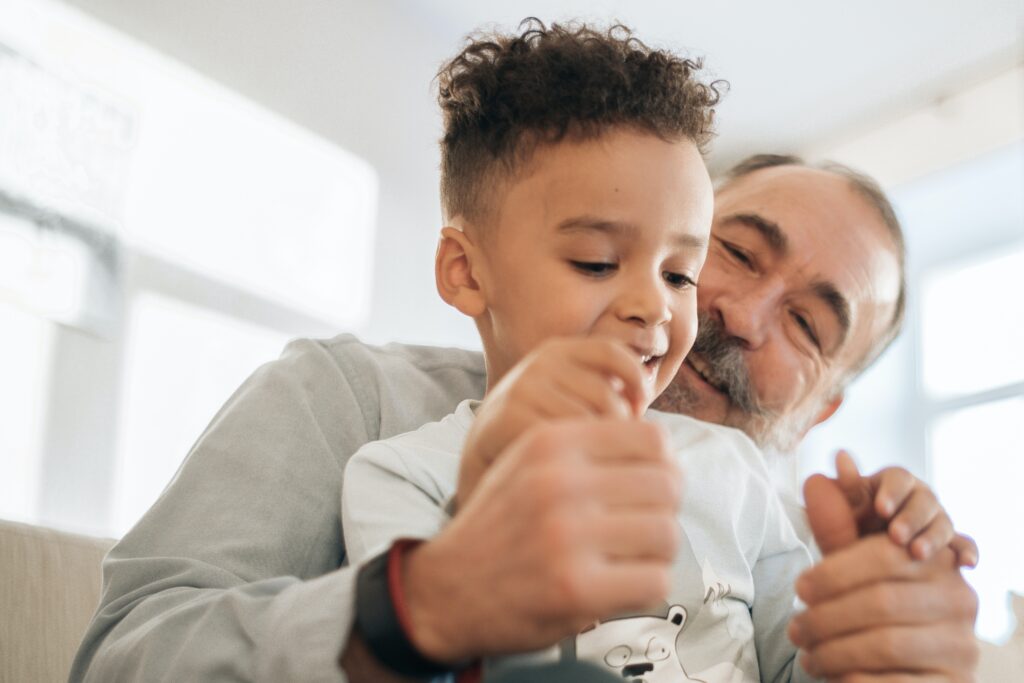
It is common for parents to worry about what will happen to their children should they both die before their children reach the age of 18 years. If anything should happen, appointing a Guardian in your Will is advised. There may be more of a concern about who the Guardian should be where parents are divorced or separated.
In most cases, there will be more than one person who has parental responsibility for a child i.e. both of their parents, but of course there are occasions where parental responsibility is only held by one parent, or it has been removed or relinquished. It may be that there are other people involved in a child’s life who hold parental responsibility but who are not actually a birth parent i.e. a grandparent, an aunt or an uncle.
What Is Parental Responsibility?
‘Parental responsibility’ is the legal rights and responsibilities that a parent would owe to their child, for example providing the child with a home, protecting them, and ensuring that their needs are met –emotional, physical and medical needs.
If everyone who has parental responsibility for a child dies before that child reaches the age of 18 then there may be some uncertainty as to who will care for that child and take on the role of a ‘parent’ going forwards.
Where no provision has been made for the appointment of the Guardian, it is often Social Services via the Courts who will need to make the decision, and their decision as to who the child should be placed with may not be who you would have chosen.
How Can I Appoint A Guardian?
It is advisable to appoint a Guardian(s) in your Will to ensure that a person(s) of your choosing can look after your child until they reach the age of 18 years.
Common Misconceptions About Godparents
It is important to be aware that Godparents are not automatically Guardians and they will have no legal rights in respect of a child should their parents die unless the provision has been made in the Will.
There are other common misconceptions when it comes to the appointment of Guardians, particularly in respect of the marital status of the parents at the time that the child was born:
- If the child’s biological parents weren’t married and the father has not acquired parental responsibility by marrying the mother, being listed on the birth certificate, or obtaining a court order granting him parental responsibility then he won’t automatically become the legal guardian should something happen to the child’s mother.
- If the child’s mother was married to the child’s father at the time of their birth, then the father will have parental responsibility and will automatically be responsible for the child if she then dies.
However, even though someone may have parental responsibility, they may not wish to keep it, so it’s a good idea to ensure that provision has been made in the Will for someone to step in should no one else hold parental responsibility.
What If Both Parents Appoint Different Guardians?
Where parents are divorced or separated, they may appoint different Guardians in their respective Wills. If this is the case, then all the appointed Guardians will need to work together to agree on decisions relating to the child’s upbringing. If this is not possible, then the Court may need to become involved.
Do I Need To Leave Any Money For The Guardians?
Many clients believe that once they have appointed a Guardian for their child that they then have to leave their estate to the Guardian to ensure that the child is provided for financially. This is not the case.
In fact, if you were to make provision for the Guardian in this way, then this would be an outright gift to the Guardian and they would have no legal obligation to use the money for the benefit of the child now in their care.
Provided that the correct clauses are included in a parent’s Will, it is possible to appoint a Guardian and then leave the estate on trust for the child until they reach the age of 18 (or an older age, if required). The Will could then give the Trustees of the Will power to draw on the funds held in trust before the child reaches the age of 18 should the child need money for education, housing and maintenance. Making provision in this way ensures that it is only your children that can benefit from your estate.
How Can Timms Help With Appointing A Guardian?
Should you wish to discuss your Will and the appointment of a Guardian further, please do not hesitate to contact me on 01283 214 231 or c.day@timms-law.com




